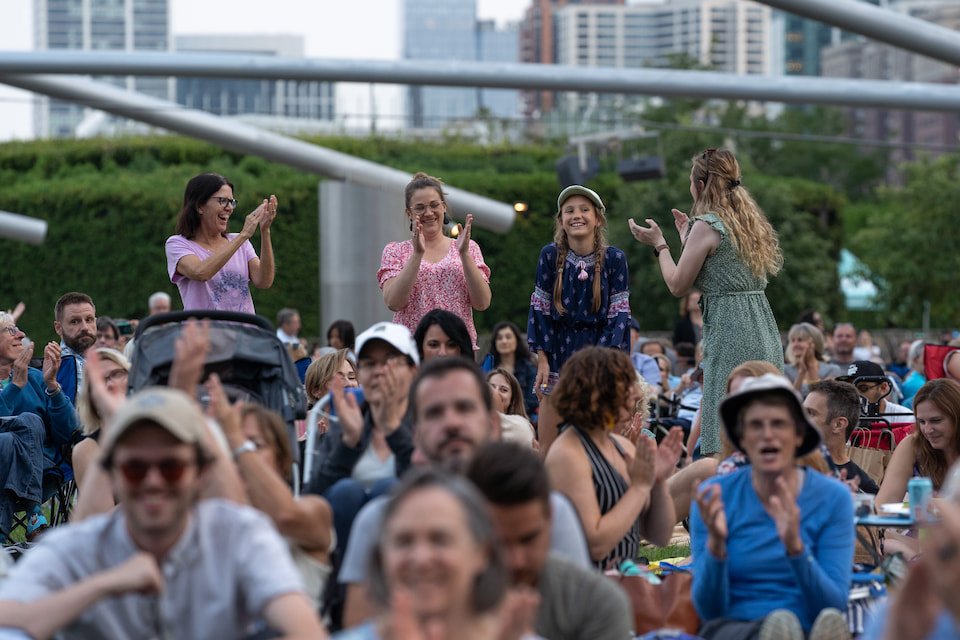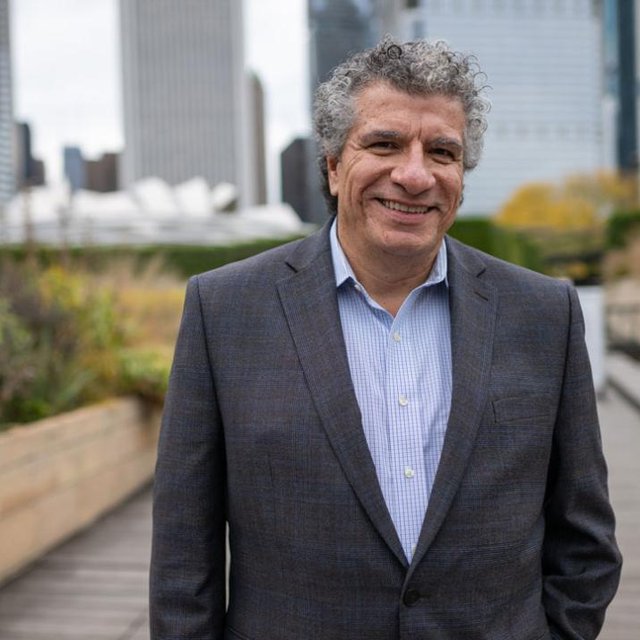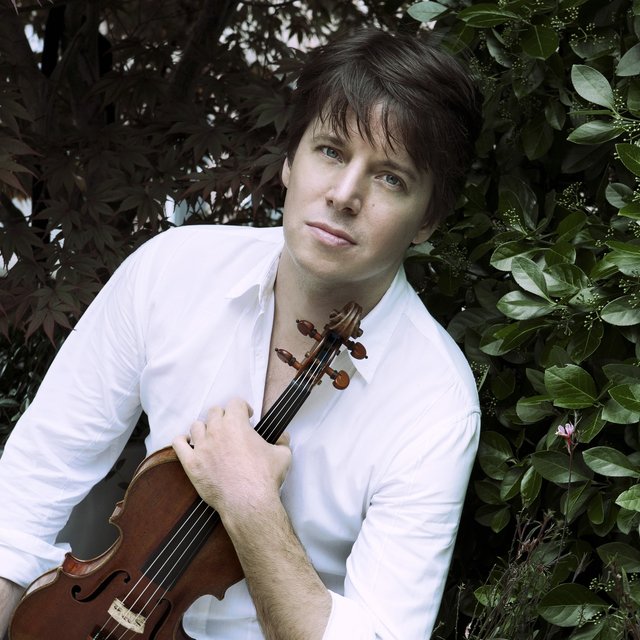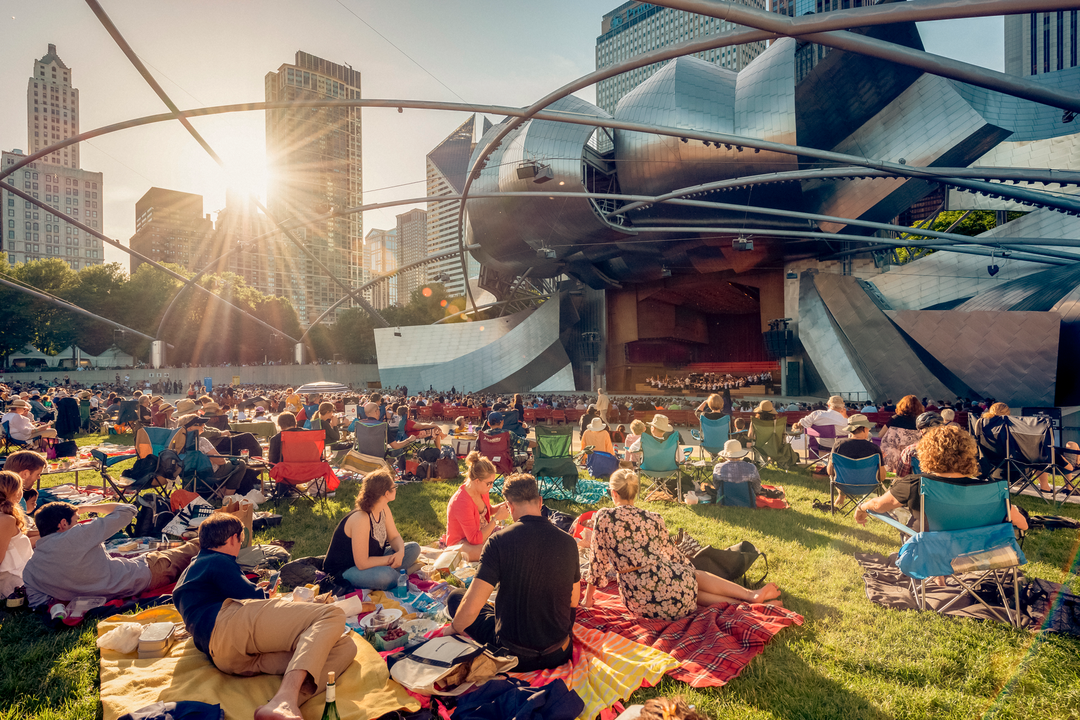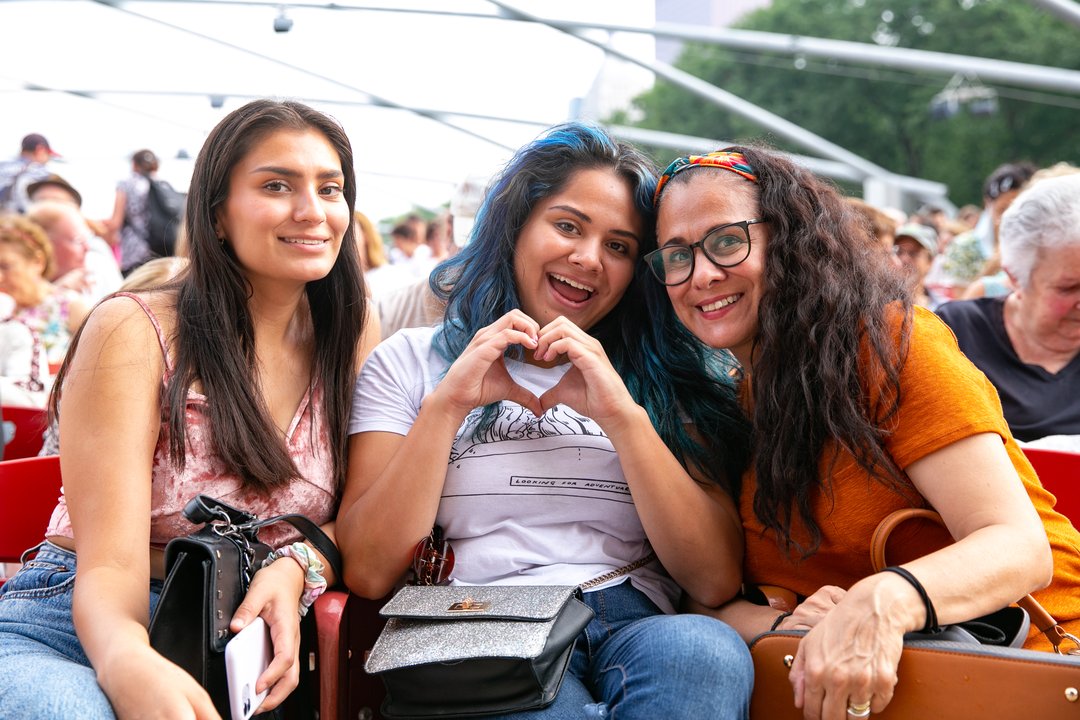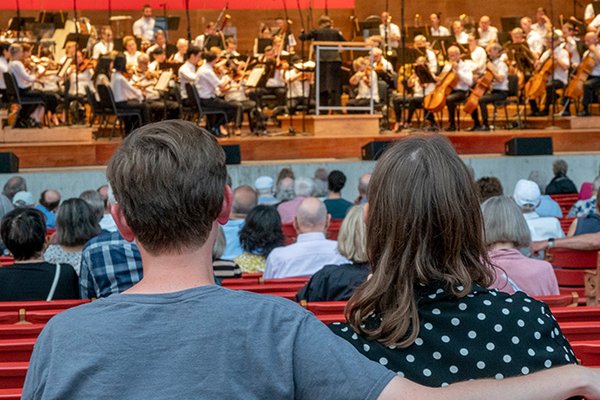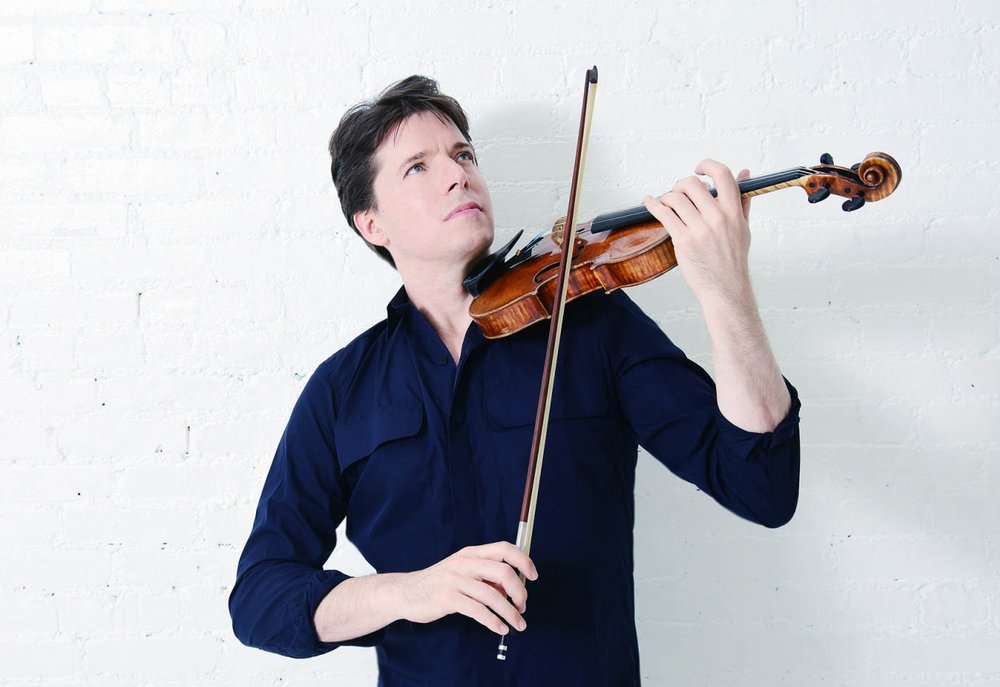
Joshua Bell and Tchaikovsky Romeo & Juliet
Program
Franz von Suppé Poet and Peasant Overture (10 mins)
Édouard Lalo Symphonie espagnole (33 mins)
Allegro non troppo
Scherzando: Allegro molto
Intermezzo: Allegretto non troppo
Andante
Rondo
Piotr Ilyich Tchaikovsky Romeo and Juliet Overture-Fantasy (19 mins)
Featuring
-
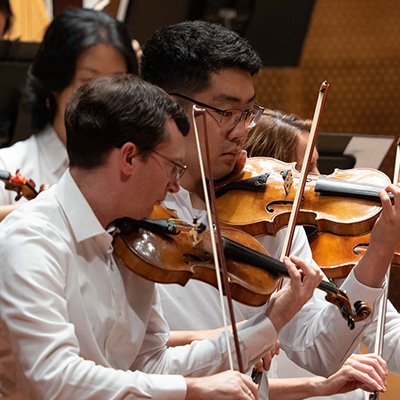
Grant Park Orchestra
Orchestra
Program Notes
Franz von Suppé (1819–1895)
Overture to Dichter und Bauer (Poet and Peasant) (1846)
Scored for: two flutes including piccolo, two oboes, two clarinets, two bassoons, four French horns, two trumpets, three trombones, tuba, timpani, percussion, harp, and strings
Performance time: 10 minutes
First Grant Park Orchestra performance: September 8, 1936; George Dasch, conductor
Born in the Dalmatian town of Spalato (present-day Split, Croatia), Franz von Suppé rose to prominence as a conductor and composer of light opera in Vienna. He penned over 100 works for the stage, including incidental music, parodies, and operettas. Today, he is largely remembered for his sparkling overtures, the most famous being the Poet and Peasant. He had used this overture in two previous productions with limited success, but it finally stuck as part of the incidental music for Karl Elmar’s 1846 musical comedy Poet and Peasant. In the play, a lovelorn poet escapes to the country, where he wreaks havoc on the hearts of the peasant girls he meets. Although the overture was not written expressly for this play, it does capture its bucolic setting and dramatic arc. After a stately brass introduction, the poet’s heartbreak can be heard in the solo cello’s sweeping melody and gentle harp arpeggios. The mood shifts abruptly to music befitting an operatic imbroglio, which alternates with a charming waltz before hurtling to a raucous finish.
Edouard Lalo (1823–1892)
Symphonie espagnole, op. 21 (1874)
Scored for: three flutes including piccolo, two oboes, two clarinets, two bassoons, four French horns, two trumpets, three trombones, timpani, percussion, harp, and strings, and solo violin
Performance time: 33 minutes
First Grant Park Orchestra performance: August 10, 1937; Ebba Sundstrom, conductor and Evelyn Levin Davis, violin
In the wake of its defeat in the Franco-Prussian War of 1870, France, stirred by a surge of nationalist feeling, was keen to promote the music of its own composers. Earlier in the century, opera had dominated the French musical landscape, whereas large-scale instrumental works such as symphonies were considered Germanic forms. That began to change in 1870 when the Société Nationale de Musique was founded to support French composers. In the aftermath of the war, opera was too expensive to produce, so attentions turned to instrumental music. One composer who was primed to take advantage of this shift was Édouard Lalo.
For 30 years, Lalo had led a quiet musical career in Paris as a teacher, composer, and string player. In 1855, he formed the Armingaud Quartet with the aim of introducing French audiences to the quartets of Haydn, Mozart, Beethoven, Mendelssohn, and Schumann. Lalo wrote some chamber music and two early symphonies, which he later destroyed. But when an opera score he submitted to a competition failed to win, he became discouraged and took a break from composing for several years. In the 1870s, the tides turned for Lalo, now in his 50s. The composer gained not only the support of the Société Nationale and some private individuals but also the ear of Spanish violin virtuoso Pablo de Sarasate. Renowned for his purity of tone and engaging stage presence, Sarasate was the dedicatee of numerous violin works throughout his career, including Saint-Saëns’s Violin Concerto No. 3 and Bruch’s Scottish Fantasy. Sarasate would premiere Lalo’s Violin Concerto in F in 1874 and his Symphonie espagnole the following year.
Not quite a symphony, not quite a violin concerto, Lalo’s Symphonie espagnole is a bit of an anomaly. Although the violin soloist is rarely absent from the score, there are no cadenzas, as would be expected in a concerto. What’s more, the work’s five movements place it neither within the scope of a three-movement concerto or a four-movement symphony. Nevertheless (and despite the misleading title), the work has earned a place in the repertoire alongside the best-loved violin concertos. Based on Spanish musical idioms, Symphonie espagnole is a character piece that reflects both Sarasate’s unique playing style and the music of his homeland. Premiering one month before Bizet’s Carmen, the piece helped spark a series of French works on Spanish themes over the ensuing decades. Symphonie espagnole even inspired Tchaikovsky to write his own Violin Concerto when violinist Iosif Kotek brought him the score in 1878, the two playing through it “to great delight.”
With the orchestra’s opening fanfare in the Allegro non troppo, Lalo introduces an idiomatically Spanish rhythmic pattern of alternating duples and triplets, which will come to define many of the work’s themes. The violin soloist soon enters, expanding upon the fanfare with a melody full of pathos. The following Scherzando employs a playful seguidilla rhythm, characterized by an accent on the second beat of a three-beat bar. The Intermezzo contains some of the most virtuosic and Spanish-flavored music of the whole work, though the movement was historically omitted from performance until the mid-20th century. There doesn’t seem to be a logical reason for its exclusion except perhaps to adhere to the expected four-movement structure of a symphony. After a melancholy Andante, the finale sparkles with a lively gigue rhythm and virtuosic fireworks.
Piotr Ilyich Tchaikovsky (1840–1893)
Romeo and Juliet (Romeo i Dzul’etta) Overture-Fantasy, TH 42c (1869)
Scored for: three flutes including piccolo, three oboes including English Horn, two clarinets, two bassoons, four French horns, two trumpets, three trombones, tuba, timpani, percussion, harp, and strings
Performance time: 19 minutes
First Grant Park Orchestra performance: August 20, 1935; Ebba Sundstrom, conductor
Piotr Ilyich Tchaikovsky had a special affinity for the works of William Shakespeare. An avid reader and theatergoer, Tchaikovsky would attend performances of Shakespeare plays and carry volumes of The Bard’s works wherever he traveled. So when fellow composer Mily Balakirev suggested Tchaikovsky write a piece based on the story of Romeo and Juliet, he leapt at the chance. Written in 1869 and revised in 1870 and 1880, the Romeo and Juliet Overture–Fantasy was the first of three symphonic poems Tchaikovsky wrote based on Shakespeare plays, followed by The Tempest in 1873 and Hamlet in 1888.
Tchaikovsky likely identified with the tragic story of the star-crossed lovers, as he was often drawn to stories about unrequited or ill-fated love. While composing the Romeo and Juliet Overture–Fantasy, he may have been romantically involved with one of his students at the Moscow Conservatory, Eduard Zak, then only 15 years old. Although we do not know much about Zak or their relationship, we do know that Zak committed suicide in 1873, three years after leaving the conservatory. Tchaikovsky was evidently still hung up on him years later, writing in 1887, “I have never loved anyone so strongly as him.” In light of Zak’s deliberate omission from memoirs and testimonials, “one begins to sense the presence of some complex and intense psychodrama almost entirely hidden from view,” Tchaikovsky scholar Alexander Poznansky writes. While it is not always productive to read pieces through the lens of the composer’s biography, one cannot help but hear immense personal passion and yearning in this piece.
Tchaikovsky does not try to depict the plot of Romeo and Juliet but rather distills the central drama of the five-act play into a 20-minute overture–fantasy using three main musical themes. The first theme is that of Friar Lawrence, heard as a rising melody in the woodwinds in the foreboding introduction. A go-between for Romeo and Juliet, Friar Lawrence tries to stop the feud between the Montagues and Capulets by agreeing to wed the lovers, but good intentions throughout the play ultimately lead to their tragic deaths. The agitated feud theme eventually breaks through, its off-beat rhythm and cymbal crashes suggesting an epic sword fight. The English horn and muted violas are the first to introduce the famous love theme. Composer Nikolai Rimsky-Korsakov said of the melody, “What ineffable beauty, what burning passion! It is one of the finest themes in all of Russian music!” The three motives continue to weave in and out throughout the development. Finally, the love theme gets its full, glorious expression in the recapitulation, but it is ultimately broken off yet again by the fighting music. We hear the love theme one last time in the elegiac coda, intoned above a quiet funeral march in the timpani, the pair’s love so strong that it transcends death.
—Katherine Buzard
Event Sponsors
This concert is graciously sponsored by American Accents Series Sponsor AbelsonTaylor Group.
The appearance of Joshua Bell is made possible with the generous support of the Grainger Iconic Performers Fund.
Artistic Leadership
-
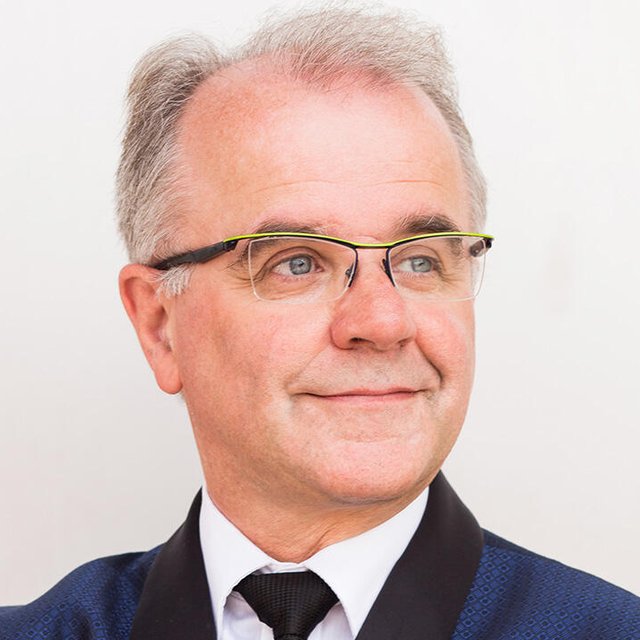
Christopher Bell
Chorus Director
Support The Festival
Violin I
Jeremy Black, concertmaster
Vacant, assistant concertmaster
Trista Wong
Zulfiya Bashirova
Jennifer Cappelli
Injoo Choi
Dima Dimitrova
Erica Hudson
Hyewon Kim
Matthew Lehmann
Jayna Park
Rika Seko
Karen Sinclair
Bonnie Terry
Krzysztof Zimowski
Violin II
Liba Shacht, principal
Vacant, assistant principal
Ying Chai
Ran Cheng
Karl Davies
Likai He
Ann Lehmann
Laura Miller
Cristina Muresan
Kjersti Nostbakken
Irene Radetzky
Jeanine Wynton
Thomas Yang
Viola
Terri Van Valkinburgh, principal
Yoshihiko Nakano, assistant principal
Elizabeth Breslin
Beatrice Chen
Amy Hess
Rebecca Swan
Chloé Thominet
Cello
Walter Haman, principal
Peter Szczepanek, assistant principal
Calum Cook
Larry Glazier
Steven Houser
Eric Kutz
Eran Meir
Double Bass
Colin Corner, principal
Peter Hatch, assistant principal
Andrew Anderson
Christian Luevano
Samuel Rocklin
Chunyang Wang
Chris White
Flute
Vacant, principal
Alyce Johnson
Jennifer Lawson, assistant principal
Piccolo
Jennifer Lawson
Oboe
Mitchell Kuhn, principal
Vacant
Anne Bach, assistant principal
English Horn
Anne Bach
Clarinet
Dario Brignoli, principal
Trevor O’Riordan, assistant principal
Besnik Abrashi
Bass Clarinet
Besnik Abrashi
Bassoon
Eric Hall, principal
Nicole Haywood Vera Tenorio, assistant principal
Vacant
Contrabassoon
Vacant
Horn
Vacant, principal
Stephanie Blaha, assistant principal
Neil Kimel
Brett Hodge
Paul Clifton
Trumpet
David Gordon, principal
Mike Brozick
Vacant, assistant principal
Vacant
Trombone
Daniel Cloutier, principal
Jeremy Moeller, assistant principal
Bass Trombone
Alexander Mullins
Tuba
Andrew Smith, principal
Timpani
Daniel Karas, principal
Josh Jones, assistant principal
Percussion
Josh Jones, principal
Vacant, assistant principal
Doug Waddell
Harp
Kayo Ishimaru-Fleisher, principal
Keyboards
Christopher Guzman
Orchestra Librarian
Eliza Bangert, principal
Grant Park Chorus
* denotes leave-of-absence † 2025 Vocal Fellow
Laura Lynch Anderson
Kristina Bachrach
Madalynn Baez
Megan E. Bell
Alyssa Bennett
Tamara Bodnar
Kylie Buckham
Anna Joy Buegel
Laura Bumgardner
Katherine Buzard
Bethany Clearfield
Nathalie Colas
Carolyne DalMonte
Megan Fletcher
Kaitlin Foley
Saira Frank
Julia Frodyma
Katherine Gray-Noon
Kimberly Gunderson
Alexandra Ioan
Alexandra Kassouf
Darlene Kelsey
Olivia Knutsen
Marybeth Kurnat
Katelyn Lee
Kyuyim Lee+
Rosalind Lee
Veronica Mak
Hannah Dixon McConnell
Marie McManama
Kathleen Monson
Susan Nelson
Evangeline Ng
Máire O'Brien
Alexandra Olsavsky
Laura Perkett
Angela Presutti Korbitz
Alexia Rivera
Veronica Samiec
Emily Sinclair
Molly Snodgrass
Tiana Sorenson
Christine Steyer
Sarah van der Ploeg*
Lydia Walsh-Rock
Sherry Watkins
Emily Amesquita
Melissa Arning
Christina Bernardoni
Angela Born
Bethany Brewer
Julie DeBoer
Leah Dexter
Katrina Dubbs
Stacy Eckert
Margaret Fox
Catarine Hancock
Ruth Ginelle Heald
Sophia Heinz
Miya Higashiyama
Carla Janzen
Amy Allyssa Johnson
Kathryn Kinjo Duncan
Amanda Koopman
Anna Laurenzo
Jeannette Lee
Thereza Lituma
Chelsea Lyons
Victoria Marshall
Jessica McCarthy
Quinn Middleman
Ella Peters
Sarah Ponder
Emily Price
Stephanie Schoenhofer
Suzanne A. Shields
Marissa Simmons
Cassidy Smith
Aidan Spencer
Alannah Spencer
Margaret Stoltz
Carolyn Sundlof Boudreau
Gabrielle Timofeeva López
Elizabeth Vaughan
Corinne Wallace-Crane
A.J. Wester
Debra Wilder
Isabel Yang+
Charles Anderson
Enrico Giuseppe Bellomo
Justin Berkowitz
Madison Bolt
Hoss Brock
Steven Caldicott Wilson
Opal Clyburn-Miller+
John J. Concepción
Micah Dingler
Jared V. Esguerra
Alec Fore
Ace Gangoso
Klaus Georg
Tejas Gururaja
Paul Hunter
Garrett Johannsen
William Johnson
James Judd
Tim Lambert
Tyler Lee
Stephen D. Noon
Marcos Ochoa
Brett Potts
Nicholas Pulikowski
Peder Reiff
Samuel Rosner
Matthew W. Schlesinger
Joe Shadday
Aaron Short
Brian Skoog
Michael St. Peter
Ryan Townsend Strand
Alan Taylor*
Sean J. Watland
Nate Widelitz
Walter Aldrich
Evan Bravos
Matthew Brennan
Michael Cavalieri
Ryan J. Cox
Ed Frazier Davis
Lifan Deng
Matthew Dexter+
Chris DiMarco
Christopher Filipowicz
Dimitri German
Dominic German
David Govertsen
Spencer Greene
Brian Hupp
Jan Jarvis
Jess Koehn
Eric Miranda
Ian Morris
Ian Murrell
John E. Orduña
Wilbur Pauley
Douglas Peters
Jackson Pierzina
Martin Lowen Poock
Ian Prichard
Dan Richardson
Stephen Richardson
Benjamin D. Rivera
Scott Uddenberg
Schyler Vargas
Vince Wallace
Aaron Wardell
Ronald Watkins
Jonathon Weller
Peter Wesoloski
Jonathan Wilson
Chuck Foster
John Goodwin
Kyuyim Lee
Isabel Yang
Opal Clyburn-Miller
Matthew Dexter
